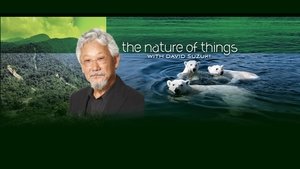
The Nature of Things (1960)
The Nature of Things is a Canadian television series of documentary programs. It debuted on CBC Television on November 6, 1960. Many of the programs document nature and the effect that humans have on it. The program was one of the first to explore environmental issues, such as clear-cut logging. The series is named after an epic poem by Roman philosopher Lucretius: "Dē Rērum Nātūrā" — On the Nature of Things.
-

Episode 1 - Phallacies
Release Date: 1999-10-04 -

Episode 2 - How to Live to 100
Release Date: 1999-10-11 -

Episode 3 - The Hidden Killer: Portrait of an Epidemic
Release Date: 1999-10-18 -

Episode 4 - Parkinson's: Lynda's Story
Release Date: 1999-10-25 -

Episode 5 - Lost
Release Date: 1999-11-08We've all felt the terror of being lost - even for just a few moments. We lose our way; a child unexpectedly vanishes in the aisles of a supermarket.
-

Episode 6 - Designing for Dignity: Engineering Body Parts
Release Date: 1999-11-22 -

Episode 7 - Race for the Future
Release Date: 1999-11-29 -

Episode 8 - Race for the Future, Part 2
Release Date: 1999-12-06 -

Episode 9 - The Sleep Famine
Release Date: 2000-01-24 -

Episode 10 - Do Parents Matter?
Release Date: 2000-02-07How much are children influenced by their peers? The documentary Do Parents Matter? examines a controversial concept put forth by Judy Harris, a suburban grandmother and author of the explosive book, The Nurture Assumption.
-

Episode 11 - Silent Sentinels
Release Date: 2000-02-21 -

Episode 12 - Wild Goose Chase
Release Date: 2000-02-28 -

Episode 13 - Humans: Who are We, Part 1 – The Birth of The Human Mind
Release Date: 2000-03-13The Birth of The Human Mind takes viewers on an amazing journey back in time, exploring the use of language, tools and how our distant ancestors came to walk. Contrary to long-accepted belief, scientists now believe that Homo sapiens did not evolve from Neanderthals, but shared the earth with them for thousands of years. Our ancestors, the Homo sapiens, are the youngest members on the human family tree, about 150,000 years old. Homo erectus goes back 1.8 million years and Neanderthals about 200,000 years.
-

Episode 14 - Humans: Who Are We?, Part 2 – The Human Invasion
Release Date: 2000-03-20Paleoanthropologists, linguists, archeologists and other scientists offer the latest interpretations of fossil findings and genetic studies and posit intriguing theories on how Homo sapiens became the only existing human species. Did we kill off our cousins, interbreed and merge with them, or did they just die out? It took five million years for an upright ape to evolve into an agile, quick-thinking and inventive human being. But once our ancestors emerged in Africa, were we destined to dominate the globe?
-

Episode 15 - Weather: Dragons of Chaos
Release Date: 2000-03-27The nature of weather is so complex that it is really a system of chaos. Weather is often benign, but occasionally the chaos spawns fierce dragons. Severe weather - violent storms, floods and droughts - is largely beyond human control, and can be cruel. Few need reminding of the 1987 tornado that killed 27 people in Edmonton, the flooding of the Saguenay region in 1996 and the Red River in 1997, and the 1998 ice storm in Quebec.
